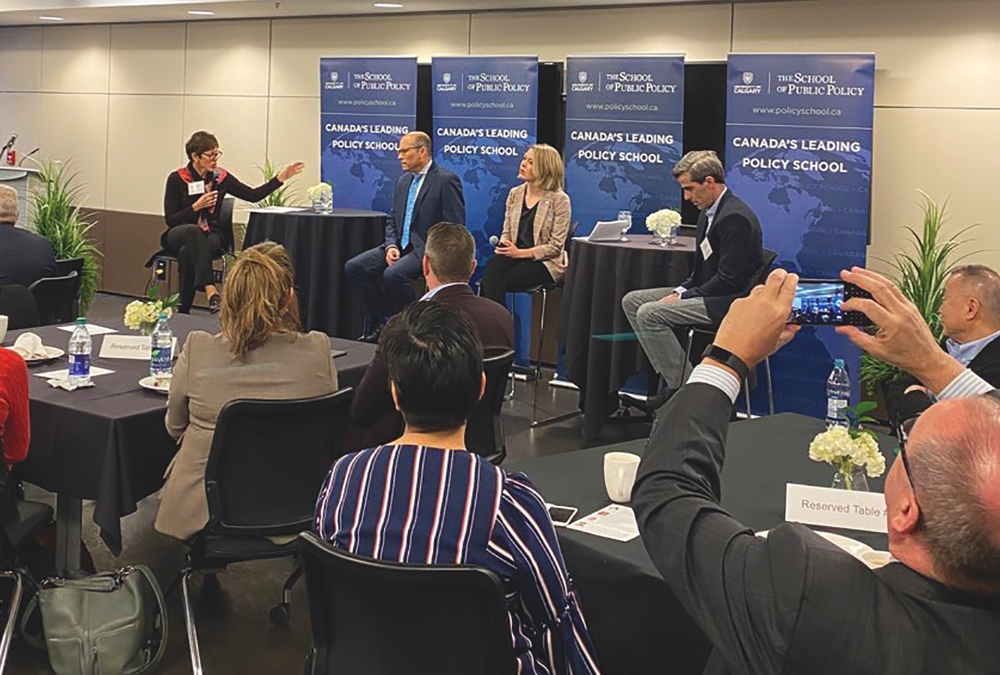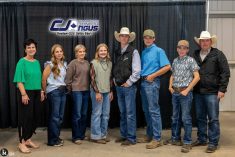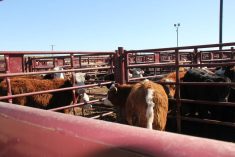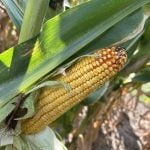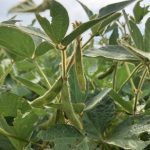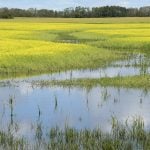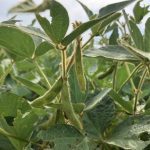More than a decade ago, John Simpson noticed that ranchers and farmers who didn’t adapt with the times paid dearly for it.
While considering funding a project related to agriculture, Simpson became concerned with the survival of the industry due to a lack of attention to consumer demands.
“Farmers and ranchers need to be aware of what the consumer wants, rather than just growing their crops and selling it and hoping for the very best,” says Simpson, who ranches west of Cochrane, Alta. “Paying attention to what we’re growing and making sure we’re growing the right products and doing things the right way is the foundation of our operation.”
Read Also

Effect of wildfire smoke on respiratory health in beef cattle
Of all domesticated species, cattle have the smallest relative lung capacity, making them particularly vulnerable to wildfire smoke.
Simpson runs about 1,000 head of Hereford females on his ranch, which was established in 1956, and owns and operates a Calgary-based construction and development company. While he has expanded his cow-calf operation over the years, he watched many fellow producers go out of business.
“Agriculture has so many opportunities, but at the time I got thinking about this there were so many people who were still doing it the way Granddaddy did it,” he says. “That doesn’t work anymore.”
It was clear to Simpson that Canadian producers need to adapt to survive and take advantage of opportunities presented to ensure the long-term viability of their operations. Through a generous gift to the University of Calgary and a forward-thinking collaboration, a new centre bearing his name is poised to conduct sound research in order to shape policies. The goal is to help producers better meet the challenges facing the industry.
In February, the U of C announced the creation of the Simpson Centre for Agricultural and Food Innovation and Public Education. The centre will be based at the university’s School of Public Policy and work closely with the faculty of veterinary medicine (UCVM).
The Simpson Centre’s mandate is to conduct research that shapes the conversation about agriculture and food production policy in Canada, helping to strengthen the industry. The centre will focus on four key research areas: food and agriculture technology, trade policy, agriculture as a major resource sector, and environment and climate change. The centre is in the process of recruiting its director, who will also have an academic role in the faculty of veterinary medicine.
This isn’t the first time Simpson has supported the U of C in agriculture-related initiatives; he was involved with UCVM’s establishment, and later funded an endowment for beef cattle research within the faculty. For this particular endeavour, Simpson wanted the approach taken by the School of Public Policy, citing the school’s reputation as Canada’s top policy institute.
“They drive change through research, and they solve real-world problems,” he says.
The U of C established the School of Public Policy to facilitate public discourse around major issues facing Canada. The school commissions high-quality, peer-reviewed research that is rigorous and independent, and uses this to inform policy papers.
“We try to frame the conversation by publishing the best-quality research possible in a language that can be understandable by decision makers, the educated public, by journalists, and we make sure that everything we publish ends up on the desk of the people that need to know,” says P.G. Forest, director of the School of Public Policy.
While some policy institutions across the country may have a couple of individuals working at this field, a whole centre devoted to agri-food research and policy is noteworthy at the academic level.
“There’s not a lot of capacity, generally speaking, in Canada around agri-food and agri-business policy issues,” says Forest. “It’s important enough for us to have decided to make the centre an independent program rather than integrated in one of our more traditional research divisions.”
Bringing together the best of the university
The collaborative, interdisciplinary approach is key to the centre’s mandate. The School of Public Policy often draws on the expertise from faculties across the university. UCVM will play a major research role, and Forest anticipates colleagues from other disciplines lending their knowledge to the centre’s work.
It’s this access to experts that Simpson believes will make the centre more successful in achieving its mandate.
“I think it’s important that we recognize the brain power that we have behind it by having the entire University of Calgary,” he says. “We’ve got every resource that we could possibly need.”
Taking an interdisciplinary approach is even more important when one considers the complex nature of the questions raised by Canadians about our agriculture and food production systems.
“Every question that we have these days cannot be answered by a single discipline,” says Baljit Singh, UCVM dean.
Singh provided the example of the high standards and quality of Canadian beef production, which is under intense scrutiny for its perceived environmental impact. To better shape policy, animal science needs to be considered along with research in conservation science, as well as the social and economic aspects of this industry.
“To answer those questions and to create a forward-looking policy that supports our agriculture food production enterprise, we need to be interdisciplinary,” he explains, noting the importance of using the best possible scientific research and the School of Public Policy’s credibility in advancing the dialogue about major issues.
In the coming years, Singh expects the centre to become the type of multi-stakeholder operation that advances the science of food production. The idea is to use that research to inform better policy so we can continue sharing Canadian-produced food, he says.
Opportunity for agriculture in economic recovery
Arguably, building consumer trust in Canadian agriculture and food production has never been more important.
“We have to assure the people of the world that Canada is a leader in agriculture technology,” says Simpson. “If we don’t tell that story we just sit in the background and we still get hammered by the competitors.”
The public’s attention on the agriculture industry makes this collaborative research and policy creation all the more vital.
In order to meet the challenges posed by the pandemic, the centre had already commissioned a series of trade-related papers in early spring. The centre also plans to develop papers to examine policy options to position agriculture as a major economic force in the post-pandemic recovery phase.
“There’s no normal to go back to, and therefore we have to start thinking very hard about what type of economy we want after this,” says Forest. “I think agriculture will be part of this, if not one of the most important sectors.”
It’s this passion and level of discourse that has stakeholders excited about the positive impact they hope the Simpson Centre will have on Canada’s agriculture community.
“Agri-food and agri-business are our future,” says Forest. “It has to become the backbone of our economy in terms of trade and growth, and so it’s very important to have people that are thinking about the ways we could make this happen.”


